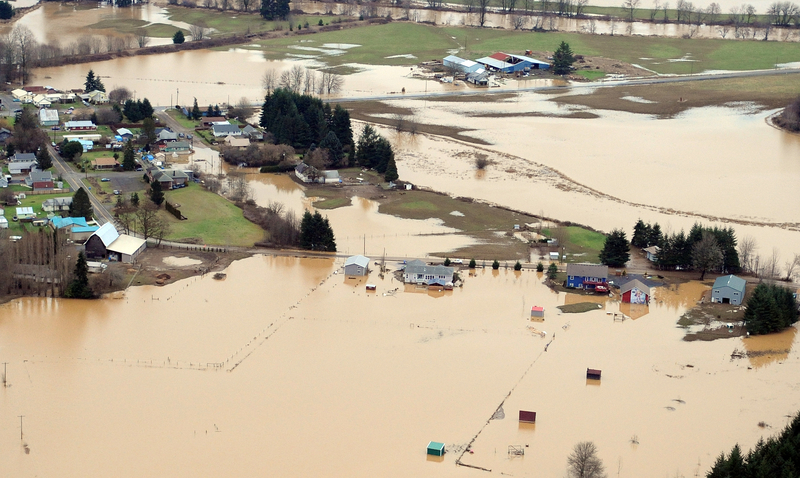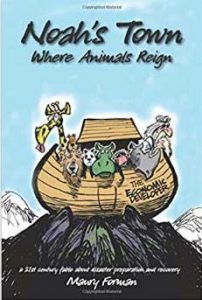
CHEHALIS, WASHINGTON — JANUARY 9, 2009 — Washington state flooding is frequent in the farm valleys along Interstate 5.
September is Preparedness Month – We talk to author and economic development scholar Maury Forman to learn why businesses should have a Disaster Preparedness Plan
Each September, National Preparedness Month encourages and reminds Americans to be prepared for disasters or emergencies in their homes, businesses, and communities. Natural disasters can feel remote or hypothetical. But the U.S. Geological Survey estimates our region has a 14% chance of magnitude nine earthquake within the next 50 years and we’re often at the mercy of utility interruption from storms, snow, and infrastructure breakdown.

Maury Forman
These impact more than daily life. Author and economic development scholar Maury Forman explains. “Many communities believe that the worst thing that could happen to them is that a major employer decides to close or relocate elsewhere. Though losing an employer is a terrible disaster, it is not as catastrophic as having a natural disaster destroy their economic livelihood…One out of every four businesses does not recover from a natural disaster.”
With this in mind, he recently released a new book Noah’s Town: Where Animals Reign. It translates harsh realities and well-researched advice into a lighthearted fable of can-do animals tackling crisis. “Many economic developers do not have disaster preparation/recovery plan on their radar. I am hoping [the book] makes them aware of the important role that they play should disaster strike so that lives and businesses can survive and communities prosper.”
Forman suggests that business owners develop a communication plan with employees, keep duplicates of important documents safely off-site, and review insurance coverage annually. For community leaders: create a disaster framework, conduct regular drills, develop strong building codes, evaluate key buildings (schools, hospitals, bridges, and first responder hubs) regularly, and invest in early warning systems.
“Economic developers have as a mission to create, retain, and expand the business community,” explains Forman. “They cannot prevent disasters but they can help the community prepare for them and help get businesses operational sooner with a minimal amount of disruption.” After 26 years as the Washington State Department of Commerce’s Senior Manager for Rural Strategies, author of 17 books on the topic, and serving as the current Senior Advisor for the Institute for Sustainable Development based in Alexandria Virginia, he’s both regional expert and unsung asset.
You can’t predict disaster but you can be ready if—and when—it strikes. Check out the Department of Health’s preparedness portal and check your current supplies for freshness and durability. As your mom always said, better safe than sorry.
